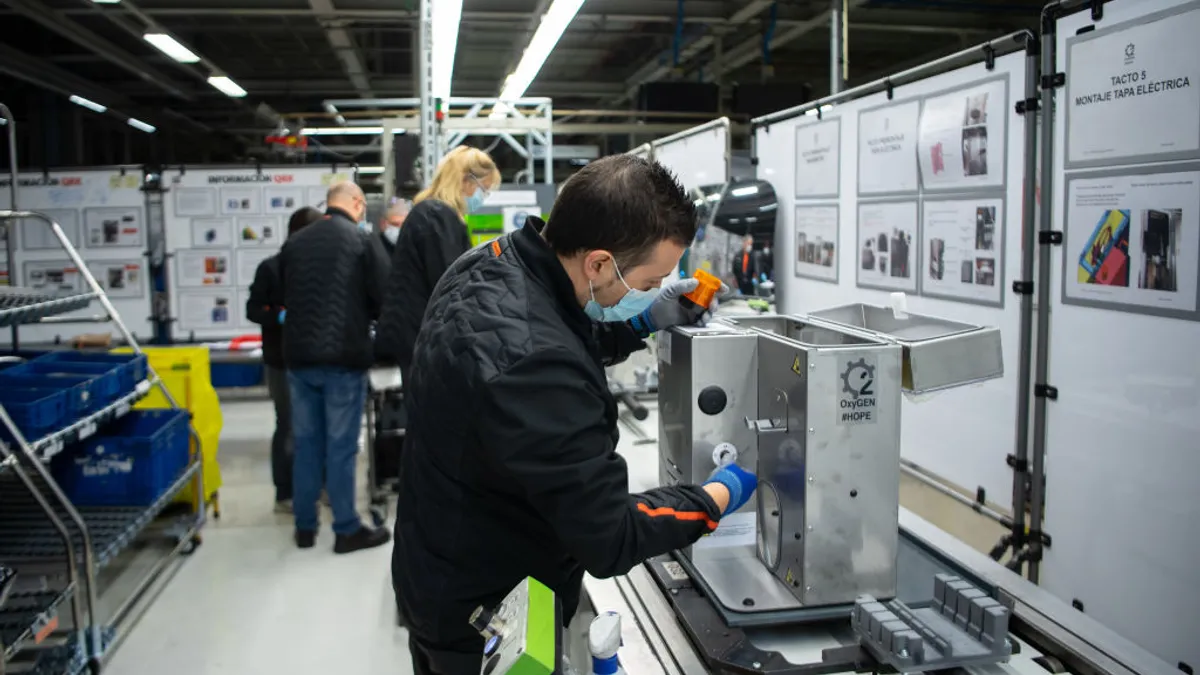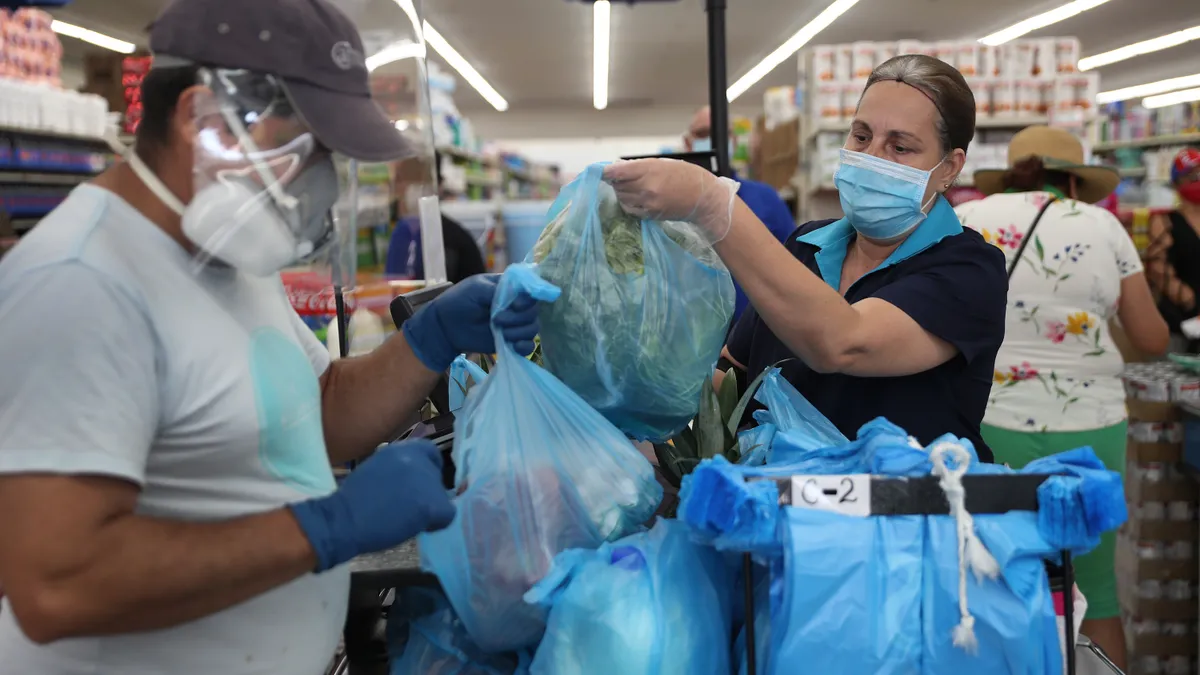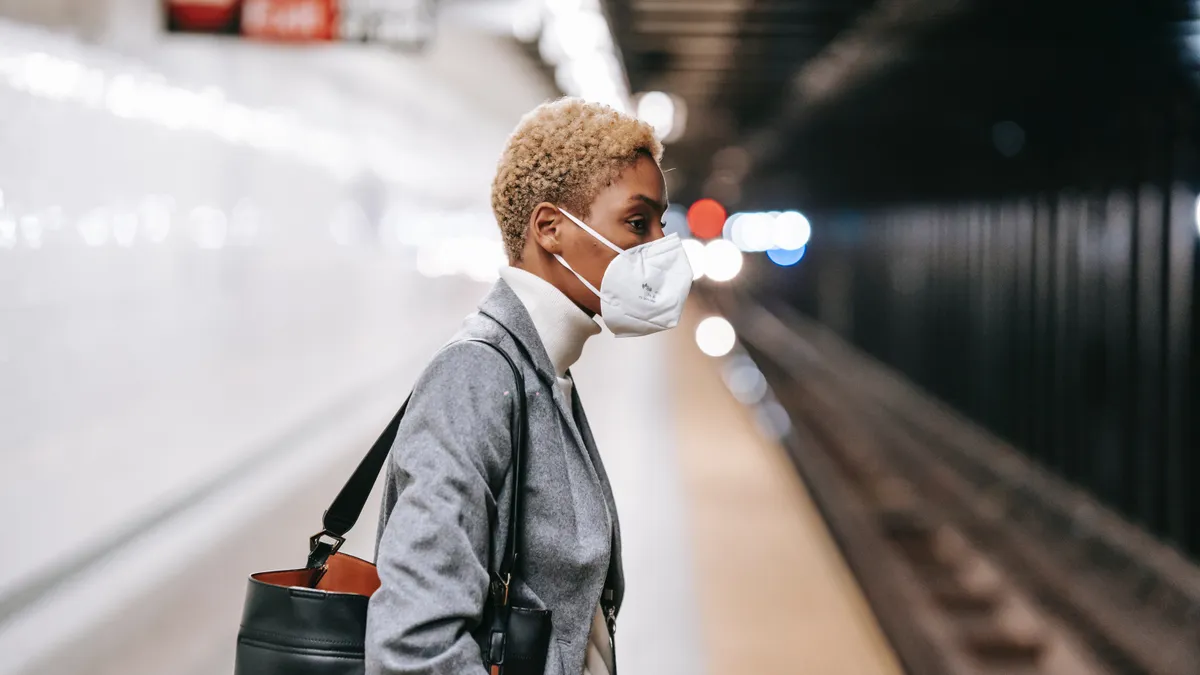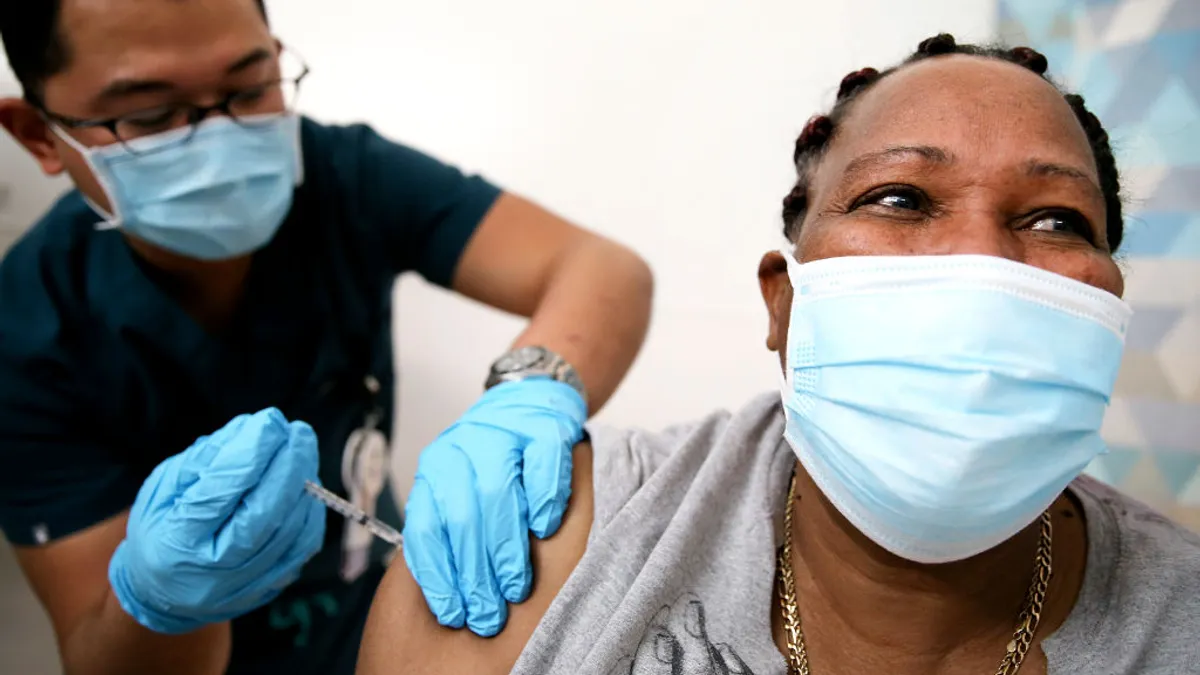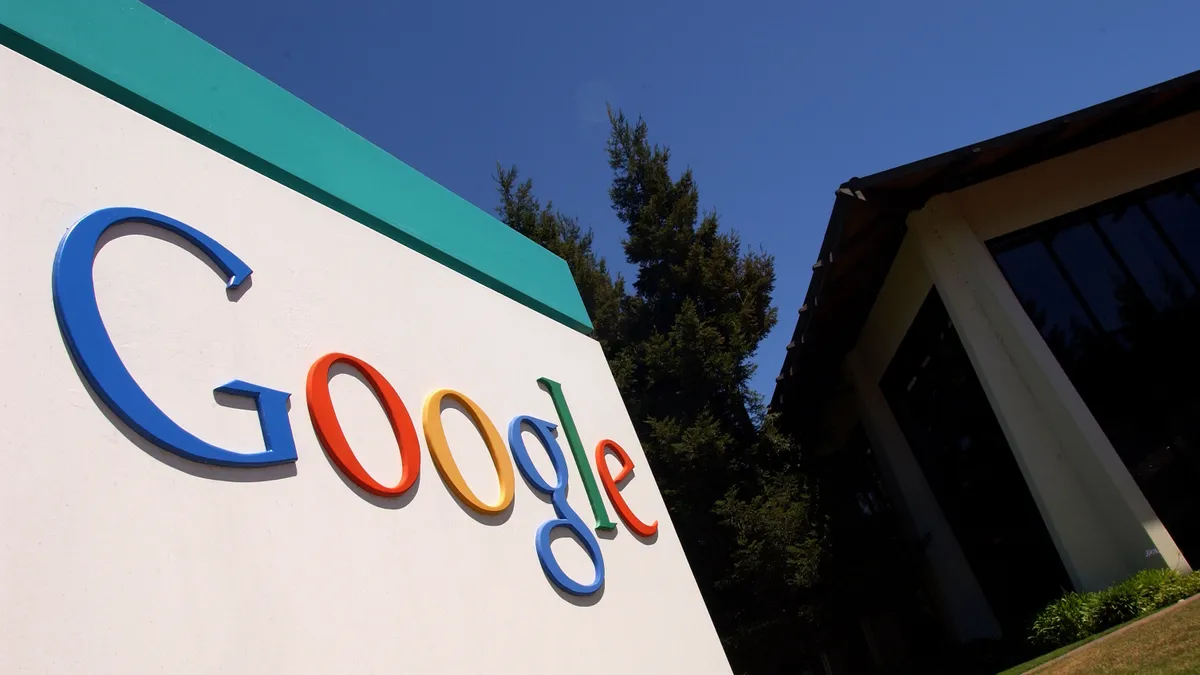For many people, a coronavirus-era rager would not be the preferred way to celebrate the end of 2021. Even employees who are giddy to see their co-workers in real life may cringe at the thought of handshakes over elbow-bumps, masks lowered to yell amid an open bar and generally close quarters. But a late-afternoon Zoom call with 100+ people may not be quite ideal either.
Similar to the "return to work" debate, approaches to holiday office parties during COVID-19 are varied. Some employers who are exercising their right to caution and remaining fully remote. Along with trivia nights and snack boxes, some enterprising folks have floated the idea of virtual cocktail parties, costume contests or craft workshops to spice up virtual holiday celebrations.
Fresh takes on stale virtual gatherings
Some are trying to hack the boredom of virtual work functions. Heading into party season, employee engagement company Sifted collaborated with Cameo, a virtual platform for booking celebrity appearances. Available talent includes actors from "The Office," "Game of Thrones" and the Harry Potter series; pro athletes from MMA fighters to football and basketball players; comics, musicians, motivational speakers and politicians. Cameo for Business, its B2B offshoot, has launched a campaign to encourage celebrity drop-ins in virtual holiday parties.
"I think that COVID kind of started a cultural reset where people are realizing that they have to acknowledge their employees for the whole person that they are," Sifted CEO Jess Legge told HR Dive. Speaking about the Cameo collaboration, Legge said, "We were like, 'Let's find a strategic partner who can bring talent from all walks of life. We can bring athletes, people from their favorite sitcoms, motivational speakers, magicians — we can really bring anyone into this kind of virtual office environment."
The challenge of IRL
Of course, the allure of in-person events prevails. Annie Rosencrans, director of people and culture for Hibob's U.S. team, told HR Dive she's striving to balance a workforce split 50-50 between New York City and other remote locations in the U.S. This year, Hibob isn't hosting a winter holiday-specific party, but a Q4 2021 fundraising celebration. The company has flown in all of its remote staff for the week.
"We're doing it live, in real life," Rosencrans said of the party. "And pretty much everyone has taken us up on the offer. No one has declined because of concerns about COVID, which is a relief," she continued, saying that Hibob leadership has been vocal about its stance regarding exposure precautions.
Generally speaking, Rosencrans' department has emphasized that unvaccinated people should be masked while working in the office. Hibob's people team has encouraged party-goers to get tested, "because the risk is a little bit higher with so many extra people in the office," she said. For context, Hibob's NYC office hosted 40 more people than usual this week ahead of the party.
Her company's approach is to not "explicitly police" people, Rosencrans said. "I know some companies may choose to do that … We have the good fortune of New York City having pretty stringent rules," she said. "So we don't need to be the bad guys in enforcing really strict protocols about who can and cannot come into the party."
Rosencrans added she's heard of other employers — hosting larger 2021 holiday events — outsourcing their COVID-19 precaution management.
"There are a bunch of third-party vendors now that are collecting proof of vaccination in advance through a portal, so that the HR department doesn't have to deal with it. They verify their status before the event, so that everyone who's there knows that everyone in the room is safe and protected," she said. "That's not something we decided to do but it's not uncommon. And if it's for companies that want to be a little bit more cautious, that's an option."
Another comparative example: Across the pond, U.K. event tech company Headbox recently published a study wherein only 3% of respondents said their ideal office party would be virtual. "People are going all out to make up for losing out on a Christmas work night out last year," Sheridan Roberts, HeadBox's head of events said in a statement.
"COVID safety is still a top priority," Roberts said. "We see it as an opportunity to get creative with ideas and different formats to deliver a festive season to remember. There's a real buzz in the air."
Comfort level is key
Lorna Boyer, marketing manager for U.K. company Eventurous, told HR Dive that her company has seen "a huge influx" of holiday event inquiries. From her perspective, however, the split between virtual and in-person parties continues to be balanced. "We're seeing lots of people looking for virtual options, as it offers the security and comfort of a COVID-safe solution — but also lots of people wanting to reunite colleagues after months of remote working."
Regarding U.K. COVID restrictions, the response is mixed, Boyer said. "It completely depends on comfort levels. The guidance from the government now is largely to get vaccinated and take regular tests and isolate where needed," she said. "We are seeing a lot of people getting colleagues to take a lateral flow test [also known as a rapid response test] before participating in events, and a lot of people still sticking to a hybrid or virtual format for both events and workspaces."
Some guests will be masked; others won't. Boyer said that many employers throwing bigger events are requiring proof of a negative test or double vaccination to attend. "Just to make sure everyone stays safe," she said. Boyer added that event providers in the U.K. are collectively embracing constant sanitization of equipment and props, and regular testing of event staff.
Similar to Roberts, Boyer said it seems many U.K. employers are planning to celebrate "in a big way" this winter.
As always with coronavirus, there are no easy answers or perfect solutions. With holiday parties, the consensus seems to be that comfort level should be the deciding factor.
Take Hibob's end-of-year soirée, for example. The need for revelry and merry-making was three fold. For one, Hibob hired 30 people in the two months prior to the party. "It's an opportunity for all these new people who have never met before to come together," Rosencrans said. "And then the other element of it is, you know, we're all coming out of a pandemic, where we haven't been social for a really long time." The goal was to add some levity to Hibob employees' existence.
"We're renting out a venue where we're going to have music and dancing and an open bar. We're going to go all out this year, because we really want to just celebrate what the company's achieved," she said, "making it through a very difficult year and a half."








